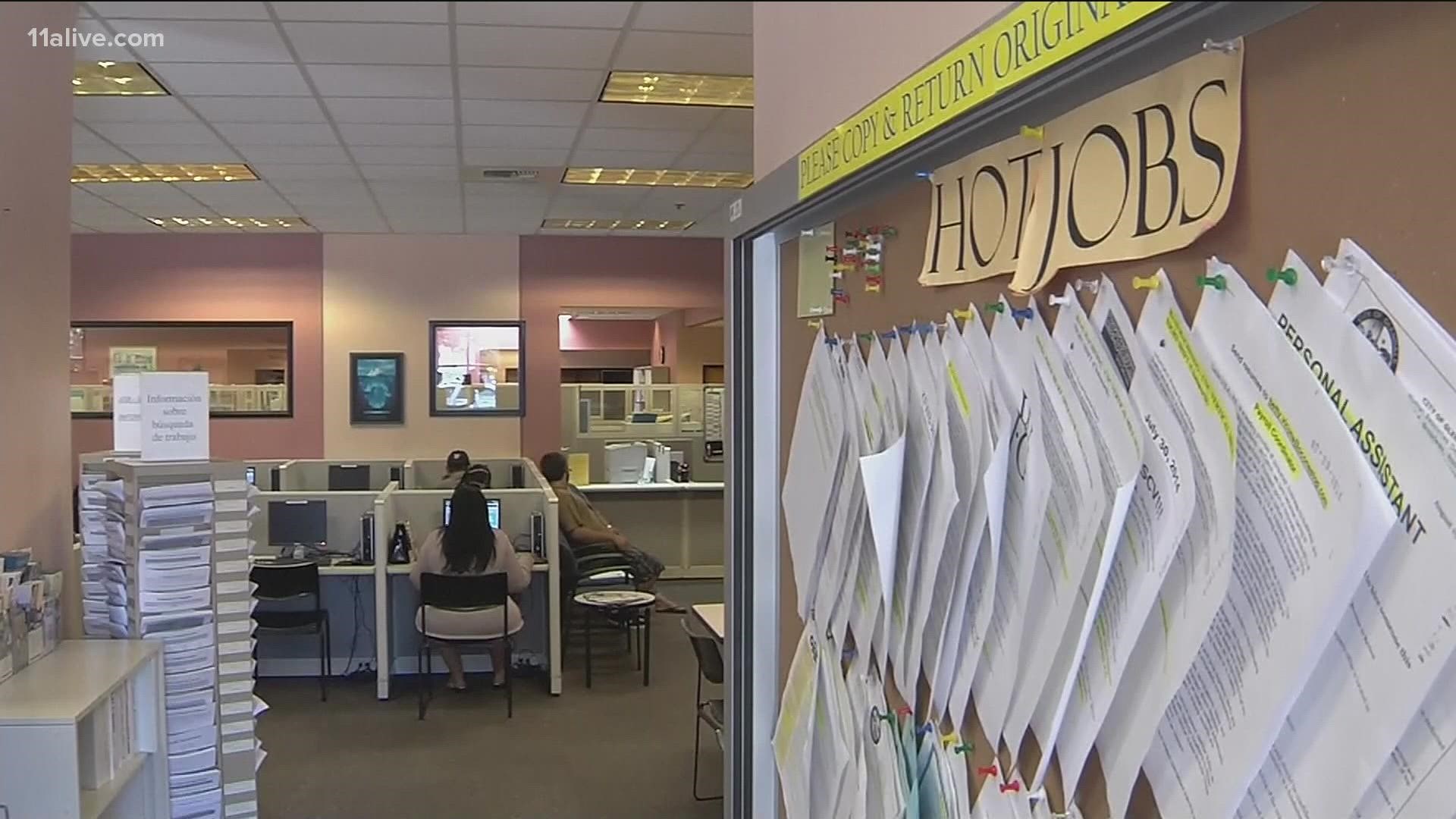ATLANTA — Whether you call it the “Great Resignation” or any other name, the trend continues with people leaving their jobs in record numbers.
A recent report from the Labor Department showed employment numbers from November, and it revealed 4.6 million people quit their jobs -- equating to about 3% of workers voluntarily leaving.
Employers posted 10.6 million job openings and about 6.9 million Americans remain unemployed.
Once upon a time, the thought process may have been once restrictions eased up, people would go back to work in record numbers. Well, people did the opposite.
“That is true for both hourly workers and also for you know, people in white collar jobs and everything in between,” said Attorney Jessica Cino.
Cino, a civil and criminal attorney who specializes in economics, corporate and business crisis representation as well as commercial breach of contract claims, said the biggest myth behind people leaving their jobs, is the idea that once unemployment benefits ran out, people would run back to work.
“That's not true. Unemployment benefits have been gone for multiple months now." Cino said. "We saw people leaving jobs before it kicked in. People are still continuing to leave jobs or not scoop up those open positions. It's not about the unemployment benefits. There are so many other factors.”
Those factors include the obvious like more money, a better work/life balance, better location, or even wanting to feel valued at their jobs. Then there’s the not-so-talked about factors. A ZipRecruiter survey showed 54% of people wanted jobs that allowed them to work remotely. Another 19% were unhappy with how their employers treated them throughout the pandemic. Others left because of childcare, health benefits, retirement and rising costs of living.
“Your rent costs more, your gas costs more, childcare is astronomical, and any of the government sort of bootstraps that were put into place to help people manage those costs, they're really ineffective because they don't do the job as a long term, type of situation that allows people to go back to work,” Cino said.
What this all leads to, according to Cino, is employees in power. Not just people in salaried or contract positions, but retail workers as well.
“Those employees have traditionally had a more difficult time, having negotiating power, but the sheer volume of positions that are open, now allow them to have some level of negotiation for a higher wage, perhaps more time off, flexible hours if you need to pick up your kids from school. Schools aren't on a nine to five schedule, they're like 7am to 3pm,” said Cino. “Employees are more in the driver's seat now than I think ever before.”
Cino said while employers may start to offer incentives or signing bonuses to get potential workers, people shouldn’t be afraid to ask for what they want, such as additional days off, money or a flexible schedule. And she said, don’t be shy in telling an employer about other offers.
“You can shop around, and you can even say ‘Hey, I'm interviewing at three other places and this is the package that they're offering. I really want to work here. Can you match that?’” Cino said.
The industries with the biggest increase in worker shortages or job losses include restaurants and hotels, education and health services, trade, transportation and utilities.
Cino said she doesn’t anticipate a quick turnaround in 2022; worker shortages may persist for a bit longer. And it may mean employees will take advantage of letting their voices be heard.
“Right now is the time.” Cino said.

